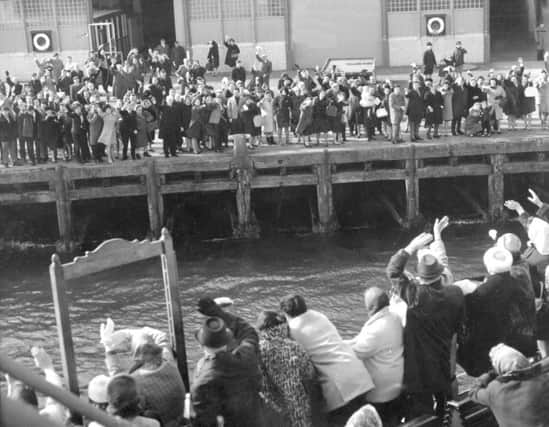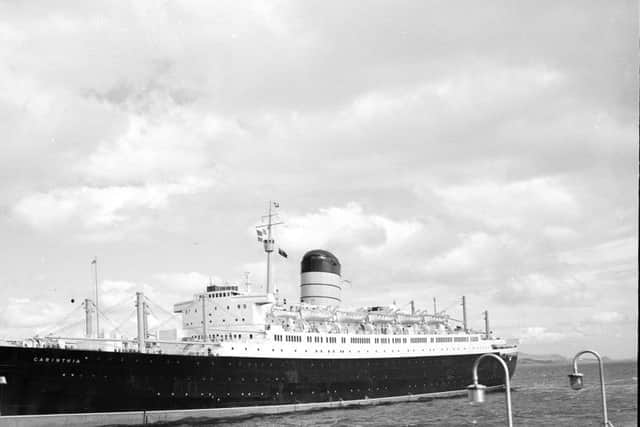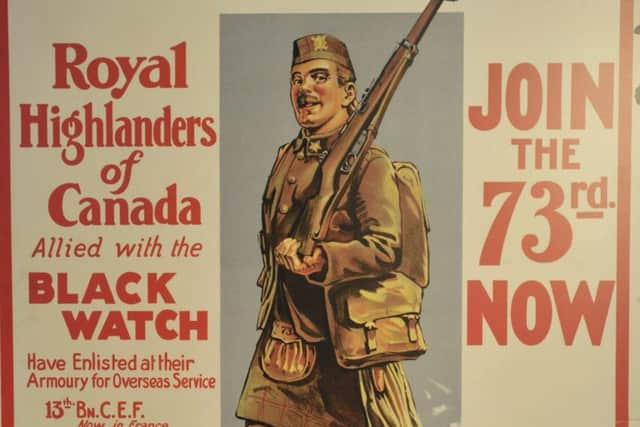The Scottish diaspora: How Scots spread across the globe


Homecoming Scotland was a Holyrood-backed plan to boost tourism at a time when the global economy was still reeling from the financial shocks of the previous year. While the event was successful enough to be repeated in 2014, debate continues as to what exactly the Scottish diaspora is and how many people it includes.
The phrase refers to the vast number of people around the world who wish to retain a connection to Scotland. The 100-million figure quoted by Salmond remains a generous estimate and is largely made up of those who claim indirect Scottish ancestry.
Advertisement
Hide AdAdvertisement
Hide AdThe tradition of Scots moving, for a variety of reasons, south of the border or further afield dates back more than eight centuries.


The subject has come under renewed academic study in the past decade following the establishment of the Scottish Centre for Diaspora Studies at the University of Edinburgh, under the directorship of Professor Tom Devine.
This was followed in 2010 by the publication of the Scottish Government’s Diaspora Engagement Plan.
So why does the subject remain a talking point?


A significant proportion of people born in Scotland - at least 20 per cent - live elsewhere in the UK or overseas, according to a 2009 Scottish Government report.
More than 850,000 live in England and Wales, while a further 200,000 live abroad. The population of Scotland stood at 5.3 million at the time of the 2011 census.
Scots are also more likely to leave their homeland and settle elsewhere than any other English-speaking peoples. Around 19 per cent of Irish people live outside of Ireland, followed by 14 per cent of New Zealanders. The figure for the US, Canada and South Africa is 5.6 per cent or less.
The concentration of a diaspora living in a nearby country is common. While around 70 per cent of Scots living outside of Scotland stay in England, 83 per cent of Canadians living outside of Canada live in the US.


Advertisement
Hide AdAdvertisement
Hide AdFollowing England, the next most popular destinations for the Scots diaspora is Australia, the US, Canada, New Zealand and Wales.
The exact figure of Scots living overseas is not known as many countries do not include Scotland as a place of birth in census forms. A 2006 survey found there to be 592,355 Canadian residents who were born in the UK. Of this, an estimated 50,942 are thought to be Scots - but the real figure could be much higher.
When looser interpretations of who makes up the diaspora are applied - such as those who consider themselves Scottish through ancestry - the numbers increase greatly.


When more distant Scots are included, estimates of the size of the diaspora increase to more than 30 million - with some suggesting the number could be as high as 100 million, a 2014 report by the University of Oxford’s Migration Observatory found.
“Clearly, the larger numbers relate to those whose sense of Scottishness is based on more distant heritage - potentially going back several generations - or even less tangible relationships with Scotland,” the report said.
“But while there may be much debate over the size or correct definition of the Scottish diaspora, it seems clear that a strong and enduring sense of ‘Scottish’ identity is important enough to be a fundamental part of the personal identity of many descendants of Scottish emigrants. It is this sense of identity, in particular, that affects elements of modern Scotland’s economy and its other interactions with the wider world.”
The self-identified Scottish diaspora is particularly strong in North America. Figures from the US Census Bureau revealed more than nine million Americans identified themselves as having Scottish or “Scotch-Irish” ancestry, while a 2011 census found 4.7 million Canadians identified themselves as having Scottish ancestry.
Advertisement
Hide AdAdvertisement
Hide AdAt the height of the industrial revolution in the late 18th and early 19th centuries immigration was a fact of life for many Scots. But while the infamous clearances led to many Highland and island communities being forcefully dispersed by landowners, there were thousands more who voluntarily chose to leave their homeland and were grateful for the opportunity to do so.
Research by Prof Devine and others has found much of the diaspora are descendents of lowland Scots who decided to make a better life abroad - and not “Gaels thrown off their land”.


“The immensely popular books of ‘victim history’ by the Canadian writer, John Prebble in the 1960s and 1970s, on such themes as Culloden and the clearances, have helped to forge the myth of Scottish emigration as a Highland experience, a diaspora of the clans” Prof Devine told the Scotsman in 2009.
“It remains a belief shared by many Scots and overwhelmingly so by the Scottish diaspora in North America today who base their ‘history’ of the nation on Prebble and similar authors and remain quite unaware of the huge advances in the transformed understanding of Scotland’s complex past made over the past few decades.”
